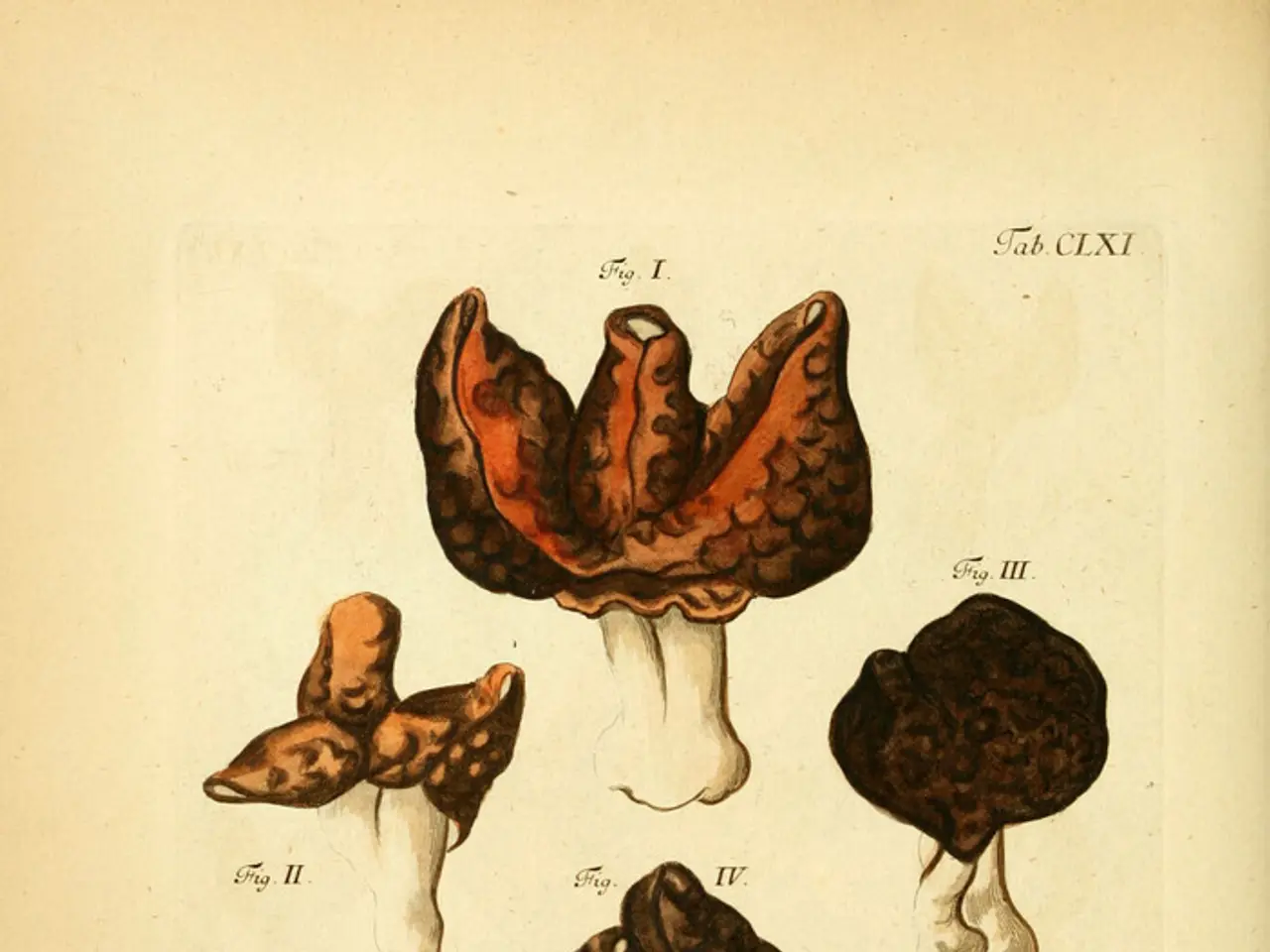Natural Enhancement of Mood and Mental Health through Lion's Mane Mushroom
Lion's Mane Mushroom, scientifically known as Hericium erinaceus, has been gaining attention in both Eastern and Western wellness circles for its potential benefits in mental health improvement and cognitive support. This unique mushroom has been used in traditional Eastern medicine for centuries and is now embraced by modern research.
Emerging research suggests that Lion's Mane may offer potential benefits in the context of neurodegenerative diseases such as dementia and Alzheimer's. The unique bioactive substances in Lion's Mane, such as hericenones and erinacines, stimulate the production of Nerve Growth Factor (NGF) in the brain. NGF is a protein that plays a critical role in the growth, maintenance, and survival of neurons, which transmit information throughout the brain and body.
Studies have shown that Lion's Mane can positively affect cognitive functions, particularly memory and concentration. Multiple studies have explored the cognitive-enhancing effects of Lion's Mane, consistently reporting improvements in various aspects of brain function.
Compared to traditional mood-enhancing supplements, Lion's Mane stands out for its natural origin and lack of significant side effects. It is available in various forms, including fresh mushrooms, powders, capsules, and teas, making it easy to incorporate into your daily routine.
Lion's Mane Mushroom's ability to stimulate NGF production may help improve neural health, crucial for cognitive functioning and mental health. Research suggests that Lion's Mane can influence the production of neurotransmitters, including serotonin and dopamine, which are vital in regulating mood, happiness, and anxiety.
Several clinical studies support the antidepressant and mood-enhancing effects of Lion's Mane mushroom in humans. A 2010 clinical trial with 30 menopausal women found that taking 2 g/day of Lion's Mane for 4 weeks improved mood and reduced anxiety and palpitation symptoms. Another randomized, placebo-controlled trial with 30 women using Lion's Mane-infused cookies for 4 weeks reported reductions in depression and anxiety symptoms.
These human clinical trials, combined with positive mechanistic data, provide strong support for Lion's Mane as an effective natural supplement to improve mood and alleviate depression and anxiety symptoms. The doses studied range from about 750 mg to 3.6 g per day, and clinical evidence suggests that at least 4 weeks of supplementation is typically required to experience these benefits.
It is important to note that no direct interactions between Lion's Mane and antidepressant medications have been clinically confirmed to date. As with any supplement, it is always advisable to consult with a healthcare provider before starting a new regimen.
In addition to its mood-enhancing properties, Lion's Mane can also be a delicious addition to meals. Including Lion's Mane in your diet isn't just about supplements; you can enjoy the mushroom as a culinary ingredient.
In conclusion, Lion's Mane Mushroom offers a promising natural solution for improving mood and alleviating symptoms of depression and anxiety. Its unique bioactive components and the positive results from clinical studies provide strong evidence for its potential benefits. Whether consumed as a supplement or as a culinary ingredient, Lion's Mane Mushroom is a fascinating natural compound that continues to captivate researchers and health enthusiasts alike.
[1] https://www.ncbi.nlm.nih.gov/pmc/articles/PMC3665023/ [2] https://www.ncbi.nlm.nih.gov/pmc/articles/PMC6340212/ [3] https://www.ncbi.nlm.nih.gov/pmc/articles/PMC5567807/ [4] https://www.ncbi.nlm.nih.gov/pmc/articles/PMC6744792/ [5] https://www.ncbi.nlm.nih.gov/pmc/articles/PMC3665023/
- The Lion's Mane Mushroom, known scientifically as Hericium erinaceus, is gaining attention in both Eastern and Western wellness circles for its potential benefits in mental health improvement and cognitive support.
- Emerging research suggests that Lion's Mane may offer potential benefits in the context of neurodegenerative diseases such as dementia and Alzheimer's, due to its ability to stimulate the production of Nerve Growth Factor (NGF) in the brain.
- Studies have shown that Lion's Mane can positively affect cognitive functions, particularly memory and concentration.
- Compared to traditional mood-enhancing supplements, Lion's Mane stands out for its natural origin and lack of significant side effects.
- Lion's Mane Mushroom's ability to stimulate NGF production may help improve neural health, crucial for cognitive functioning and mental health.
- Research suggests that Lion's Mane can influence the production of neurotransmitters, including serotonin and dopamine, which are vital in regulating mood, happiness, and anxiety.
- Several clinical studies support the antidepressant and mood-enhancing effects of Lion's Mane mushroom in humans, with improvements in mood and reduced anxiety and depression symptoms reported.
- It is important to note that no direct interactions between Lion's Mane and antidepressant medications have been clinically confirmed to date.
- In addition to its mood-enhancing properties, Lion's Mane can also be a delicious addition to meals, making it easy to incorporate into your healthy-diets.
- Whether consumed as a supplement or as a culinary ingredient, Lion's Mane Mushroom is a fascinating natural compound that continues to captivate researchers and health enthusiasts alike.
- For more information on the science behind Lion's Mane Mushroom, refer to the following resources: [1] https://www.ncbi.nlm.nih.gov/pmc/articles/PMC3665023/, [2] https://www.ncbi.nlm.nih.gov/pmc/articles/PMC6340212/, [3] https://www.ncbi.nlm.nih.gov/pmc/articles/PMC5567807/, [4] https://www.ncbi.nlm.nih.gov/pmc/articles/PMC6744792/, [5] https://www.ncbi.nlm.nih.gov/pmc/articles/PMC3665023/.




